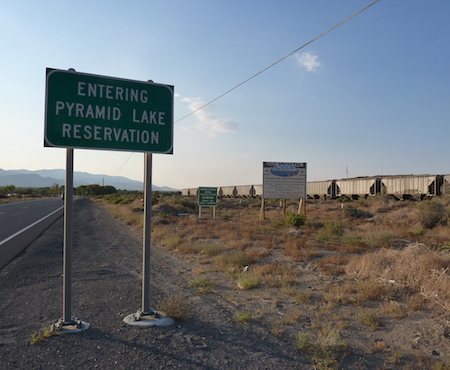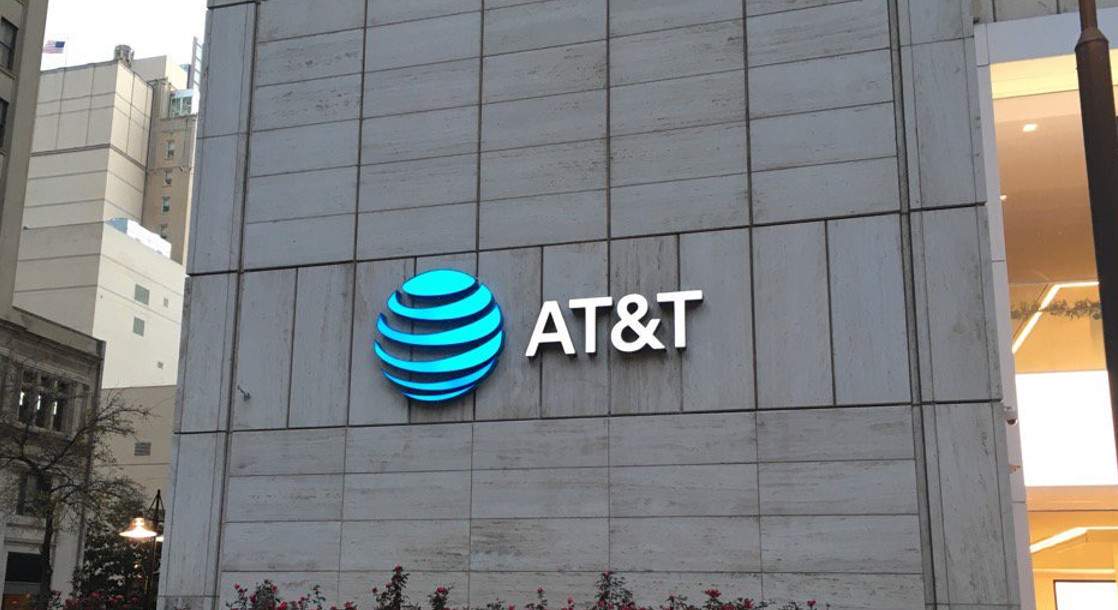Nevada is home to a lot of things: neon casinos, prime rib specials, and now legal weed. Although legalization is slowly becoming the law of the land in the United States, on June 2, 2017, the Battle-Born State did something truly revolutionary. It passed Senate Bill 375, one of the nation's first laws to forge a marijuana compact between Native American tribes and a state government. The apparent conflicts between federal and state laws concerning weed are complex enough, but when we throw tribal sovereignty into the mix, the issue becomes even more confusing.
All Native American lands stand as their own territories, which are separate from the United States. The US government created reservations in the first half of the 1800s under a series of forced relocation programs. In 1887, these programs culminated in the Dawes Act, a federal bill that not only allowed privatization of reservation areas, but also subjected all Native Americans to federal law.
Fast forward to 2014. That year, the US Department of Justice issued the Wilkinson memo which stated all federal guidelines for medical marijuana states (e.g. no selling to kids, no cannabis crossing state lines) would apply equally to Indian Country. Unfortunately, the Department of Justice's memo is just that, a memo, with no more legal permanence than a scribble on a sticky note. Since 2014, the feds have raided several tribal cannabis operations, including a hemp farm and what would have been a marijuana resort.
Where federal jurisdiction begins and ends has always been a source of conflict within tribal territories. SB 375, however, clarifies many of the legal gray areas regarding tribal sovereignty and Nevada's regulated weed. Although the bill only protects tribes at the state level, it grants the green light to transport marijuana products from the reservations into state-held territories and vice versa. It's basically one small step for America's tribes, one giant leap for the cannabis movement.
Cassandra Dittus is one of SB 375's most ardent supporters. Dittus is a cancer survivor who got her start in Colorado's medical cannabis industry. Soon after receiving her medical card, she began working in dispensaries at the floor level, then quickly made her way up the ranks. Currently, she is the co-owner of Tribal Cannabis Consulting, a Nevada-based advisory firm that assists tribal cannabis entrepreneurs. MERRY JANE spoke with Dittus by phone to find out more about SB 375's roll-out, and how it may affect our indigenous communities as well as the nation's weed industry.
MERRY JANE: Are there any guarantees that SB 375 can protect tribes from the federal government's prohibitionist policies?
Cassandra Dittus: That's really complicated. Native American tribes are their own sovereign nations, and each acts as its own government. There's no one governing entity for Native Americans other than they're under the federal government, in the same way that the states are.
SB 375 basically allows the tribes to cross jurisdictionally in order to bolster their marijuana programs. Their programs are designed to operate on tribal lands. Through these tribal compacts, they can work with outside entities. The complicated aspect of this is that states are also on federal lands.
The short answer is that there's no guarantee. SB 375 is one more step tribes have taken to work compliantly with states they're around. They're completely encompassed in states, including states with medical and recreational marijuana programs. They really have no option to ignore it. That they're not allowed to be part of it gets into something that's a bigger-picture problem.

Under SB 375, can tribes trade cannabis products between reservations?
That's where the complexity comes into play. When cannabis leaves the reservation boundary, it's immediately going into the state, so it's crossing that boundary. The compact allows the governor to work, government-to-government, with the tribal government. It basically says, "The state of Nevada has created this robust client system, and if you agree to uphold these same regulatory standards, then you're allowed to cross your borders and do business within the state." But that only applies within the state of Nevada. Currently, that doesn't extend to any other states, but it's still a pretty big deal considering that a lot of the tribal members are residents of the state of Nevada as well.
Does SB 375 in any way enhance or augment the Wilkinson memo?
The DOJ memo doesn't say anything about tribes being able to grow or sell marijuana within states or not. That doesn't make a difference at all. What we have found is that it will be nearly impossible for tribes to do in a state that doesn't have some kind of marijuana program. That's primarily because a lot of tribal nations and reservations are fairly small, less than a thousand acres. They have to be considered in the state that surrounds them. Even though they're just regulating their jurisdiction and their reservation, the lands that they own can be either fairly big or fairly small. What that means is crossing into these tribal boundaries, there are state entities that would technically be breaking the law by crossing into the tribal boundaries to deliver marijuana.
SB 375 opened up commerce, because tribes can issue cannabis licenses just as a state can. They have the ability, because they are sovereign nations, to write in their priorities into their laws. For all intents and purposes, tribes are considered separate countries. They can even make their own laws. They can have different regulations from what the state of Nevada has written.
As part of the compact, the state of Nevada has to evaluate their codes and say, "Yes, we agree. This is as robust as our system." So, although the regulations are not nearly identical between the tribes and the state, they are as robust as to what they're compared to.
If tribal lands cross state borders, can tribes move cannabis products across state lines?
We're still working our way through that. It has been considered, because we do consult with tribes that cross jurisdictions. On that end, they're required to do different things to stay within compliance with state regulations. It's like having a city in two different states.
Tribes cannot be taxed by state or federal governments. Will they get the upper hand, financially, by not sharing the tax burden with state-regulated weed businesses?
The compact outlines that the tribal businesses must agree to collect the same amount as the state tax. It keeps things in the market pretty fair, but that taxation does go back to their communities, just as state taxation goes back to the state.
For the hardcore smokers, could there be cannabis smoking in tribal casinos?
I think we're fairly far away from that, primarily because casinos have a very distinct federal presence. [laughs] The tribes will have a lot of issues crossing marijuana into casinos. The first hurdle is really getting them into the industry, but smoking in casinos will be a very large hurdle that possibly could not come into play until the federal legalization of marijuana.
From your experience, have you seen Native American pot entrepreneurs face discrimination?
Mainly what I've seen is them not receiving the respect to recognize them as a sovereign government. There's a lot of things the federal government controls on tribal lands, and the feds assume that extends to everything. But tribes are made up of intelligent, respected people. There are tribal leaders that care more about their communities than we see most state politicians ever do. They're next to their people day-in and day-out. They're a lot closer to their communities.
There are instances where it really feels like there is racial discrimination. When they're making requests to meet with government officials, and they aren't getting the same respect that a state governor would get, it's hard to watch. When we're working with clients who really want to do something for their community, and it's difficult for them to even get these conversations started. When they finally get the conversation started, they get these really brief answers that say nothing about how they're going to be working government-to-government. In terms of being disrespected, it's really on the government-to-government side of this. They're often not seen as another national government, which they are.
The conversation also seems impossible sometimes because officials don't have the answers to how legalization applies to tribal trust lands or federal lands.
Tribes are wrestling with substance abuse on reservations, with rates that are much higher than the national average. What would you say to someone who sees cannabis as a gateway drug?
I would respond on the note of the opioid crisis. People are going to have pain. People are going to have ailments. What happens in the wake of the opioid crisis is addicts move into heroin. There is a 25 percent drop in opioid use in states with medical marijuana programs. That's pretty significant. That's definitely saying there is a correlation between marijuana and getting people off of these harder drugs.
People need an opportunity to obtain medicine that will help them with their pain, that will help them alleviate these issues. One option is opioids that can kill you. There are, to date, zero deaths from marijuana.
I personally have seen this. One of my most memorable clients was a medical patient in Colorado. He was very heavily addicted to opiates after a car crash. He used to come in sweating bullets. He was a heavy-set guy who had trouble breathing. Six months later, he had worked himself off his opioids, came in smiling, lost weight–he looked like a whole new person. That was almost nine years ago that I met this guy, and just watching the change that he went through, I've seen it first-hand. I've seen people get off harder drugs because marijuana.
So, there's an argument that it goes both ways, but in the wake of the opioid crisis, legalization is something that the tribal communities should definitely embrace, because cannabis is a natural medicine as well.
How would you sum up the importance of this issue?
People who believe in the progression of the cannabis industry should support the tribes being involved. The tribes have a lot to offer this industry, and they have a lot to offer their communities, too. Native Americans aren't trying to live off the government. They're trying to embrace a massive industry that everyone else around them can access.











